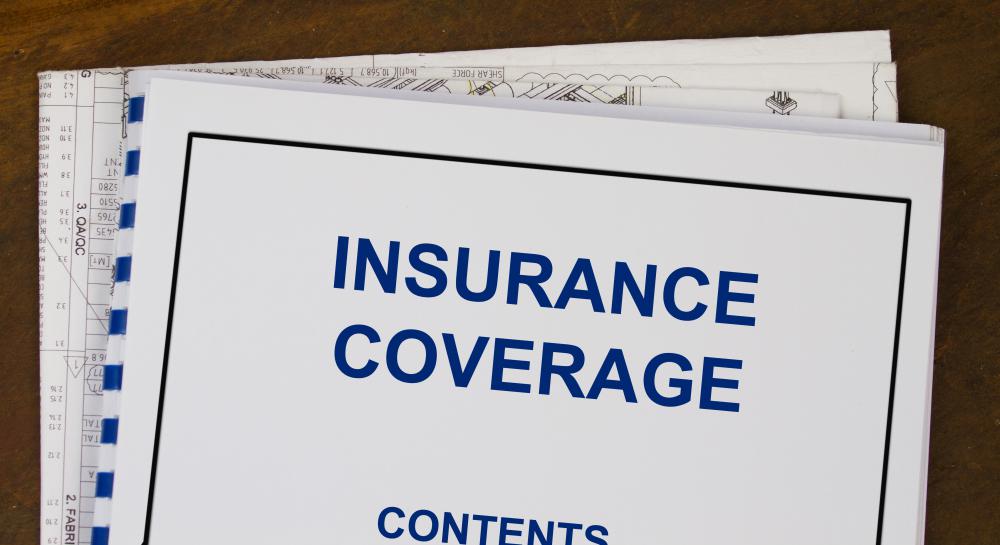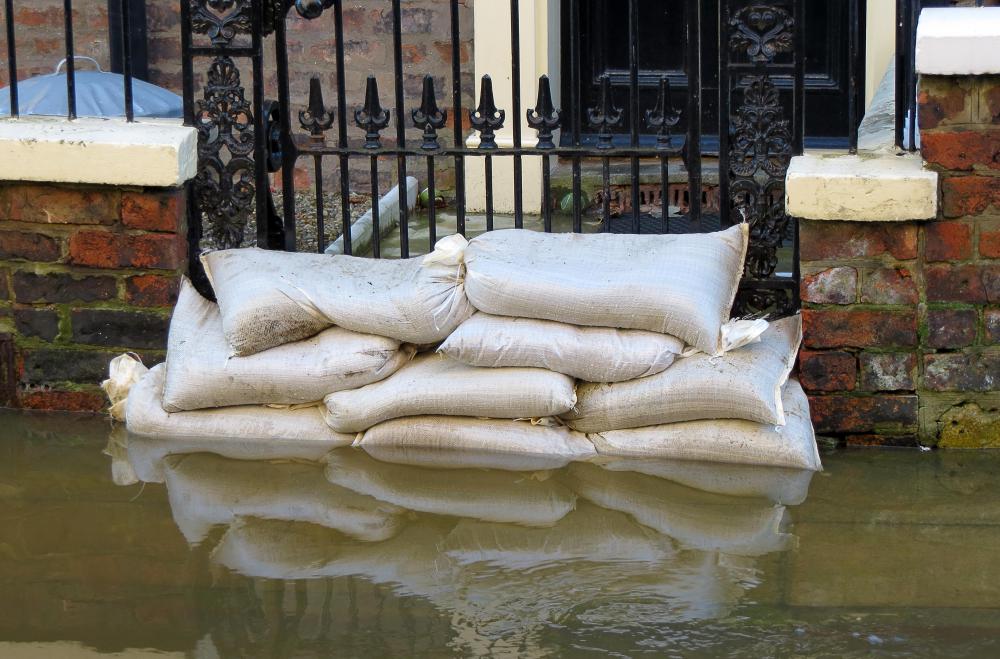At SmartCapitalMind, we're committed to delivering accurate, trustworthy information. Our expert-authored content is rigorously fact-checked and sourced from credible authorities. Discover how we uphold the highest standards in providing you with reliable knowledge.
What is an Insurance Premium?
An insurance premium is the amount of money charged by a company for active coverage. The sum a person pays in premiums, also referred to as the rate, is determined by several factors, including age, health, and the area a person lives in. People pay these rates annually or in smaller payments over the course of the year, and the amount can change over time. When insurance premiums are not paid, the policy is typically considered void and companies will not honor claims against it.
What Premiums Cover

Generally, premiums cover whatever is detailed in the insurance policy, and the services provided or paid for depend entirely on the specific policy and type of protection. The following are the most common varieties and the basic services they often cover. Consumers should keep in mind that not all of these types of insurance are available or common in all countries, and there are many other kinds.

Life insurance typically pays a lump sum in the event of the policyholder's death to those detailed in the person’s will or the plan itself. It may pay for funeral arrangements, outstanding debt, living expenses for those left behind, or other expenses related to the deceased's estate.
Health insurance often pays for some portion of the expense of office visits, prescription medications, surgical procedures, mental health services, ongoing treatment, and/or emergency services. Not all of these services are always covered, however, and plans can vary widely. A person may have to pay out of pocket for certain services or for a percentage of the cost of services rendered.

Car insurance premiums usually cover damages to the policyholder's vehicle, any other vehicles in an accident, roadside help, and/or medical bills related to an accident. Motorcycle, boat, and other types of motorized vehicle coverage usually provide the same types of services.
Home owners' insurance, which is typically paid yearly or as a part of a combined escrow mortgage payment in some countries, usually covers damages to a home as well as its contents in the case of theft, fire, storms, and many other disasters. Renter's coverage is similar, although usually only pays for damage caused by the policyholder or damage to the policyholder's personal items.
How Rates are Calculated

The starting point for an insurance premium is largely based on statistics, though people's habits and history can cause the rate to be higher or lower. A 22-year-old male seeking coverage for a sports car can often anticipate higher premiums than a 45-year-old woman driving a mid-size sedan. Both may have excellent driving records, but the insurance company considers a younger driver in a faster car more at risk for accidents than it does an experienced driver in a slower vehicle; therefore, the insurance quotes will usually be noticeably different.

The same philosophy holds true for medical insurance premiums in countries where the government does not provide health care to its citizens. People with health problems or who engage in unhealthy activities and those in dangerous fields of work often pay significantly more for insurance than healthy individuals with safe jobs. For example, non-smokers statistically live healthier lives than smokers, and construction workers may have more serious on-the-job accidents than accountants. Therefore, a construction foreperson who smokes will typically pay much more in premiums than a non-smoking CPA.

Insurance rates also vary by area. When it comes to automobile coverage, companies that provide service in cities or regions that statistically show an above-normal accident rate will often charge more than companies in places where there are fewer accidents. For property insurance, the size and age of the property, how close it is to a flood zone, and the chances of bad weather are all considered, as is the amount of money a homeowner will need to replace his or her household goods, when a company is fixing rates.

The cost of a premium for the same service can vary widely among providers, which is why experts strongly recommend that consumers get several price quotes before committing to a policy. People should keep in mind that the lowest quoted price on a premium may be the better bargain, but the insurance policy may not provide much coverage.
What Causes Rates to Change

Insurance companies can raise premium rates for any number of reasons, but one of the most common is a high number of claims on the policy. An insurer typically bases its prices on how much it will end up paying over the life of the policy; ideally, it tries to pay out less than what the policyholder pays in. When a person regularly files claims against the insurance policy, the company has to pay out more, limiting its profit margin. As a result, it will often raise premiums to recover this cost.

In this same line, an insurer may raise rates if it expects an increase in claims. For example, if an otherwise healthy individual sustains permanent injuries in a car accident, her health insurance company may increase her premiums because it expects her healthcare costs to go up. Rates may also rise generally due to a price hike in services, to pay for claims from other policy holders, or to keep up with inflation.

For property insurance, whether homeowner or rental, instances where the property is rezoned into a flood zone, earthquake zone, or similar situations may cause rates to rise. Renting out a primary residence or keeping certain animals or items, such as a trampoline or pool, on the property may also cause an increase.
Although it is most common for rates to rise, they can also be lowered. Some car insurance companies offer good driver discounts, for example, or even lower rates for students who earn good grades in school. Changes or improvements to the item being insured can also cause premiums to go down; a house may qualify for a discount if it has a fire suppression system installed, for example, or a car with airbags may cost less to insure. Many insurance companies offer reductions or reimbursements for lifestyle changes, such as quitting smoking or joining a gym.
Payments and Missed Premiums

An insurance premium is usually collected in monthly, semi-yearly, or yearly payments, depending on the type of policy. Policyholders also often have the option of combining their payments with fees for other services, or taking out several types of policies with one company to lower the overall costs. For example, buying both car and renter's insurance from the same insurance company may give the buyer a discount on both.
If the policyholder fails to make a scheduled payment, the company can choose to cancel the plan entirely. This is often referred to as a "lapsed policy," and the customer will typically be required to either pay the balance of the insurance premium and be reinstated or the policy will be voided. Because the billing cycle can be lengthy in some cases, it is not uncommon for policy holders to forget to make a payment before the policy lapses. In almost all cases, a person cannot make a claim against a policy that is not current in premium payments.
A person also cannot receive a refund on his or her insurance payments, in most cases, even if he or she never makes a claim on the policy. While this may seem like a waste of money, one large claim can more than make up the difference, and having this peace of mind is worth it for most people. Life insurance works slightly differently, however, and it may be possible to withdraw money from the policy, borrow against it, or sell it for cash. Doing this may have tax implications, however, and may mean that the beneficiaries will not get the same amount of money after the policyholder dies.
AS FEATURED ON:
AS FEATURED ON:





















Discussion Comments
What is meant by insurance broking?
How much do I pay to insure a warehouse worth twenty five million Nara only?
What is cost accounting?
Are car insurance premiums paid in advance of the cover period or in arrears?
The underwriters play a vital roles in insurance business. Why there are differences in premiums paid by insurance companies?
Insurance is a contract where you pay money to avoid a possible greater loss of money or value. #5, if the down payment is not paid, i.e. bad check, the contract was not valid and no the company does not have to pay a loss if the premium is not paid.
After issuance of insurance policy, is the insurer obliged to honor the claim of the insured party despite non payment of insurance premium by the applicant of the insurance policy?
who sets the rates for the premium and how is it calculated as i.e 0.65 percent. who sets this and how did they calculate this 0.65 percent?
how do i explain to someone that the premium they pay every year can't be given back to them?
How long does a property which is insured, if involved in an accident and it is badly damaged, take to qualify for it to be replaced with a new one?
what is a premium charged by legal firms and how do they charge it?
Post your comments